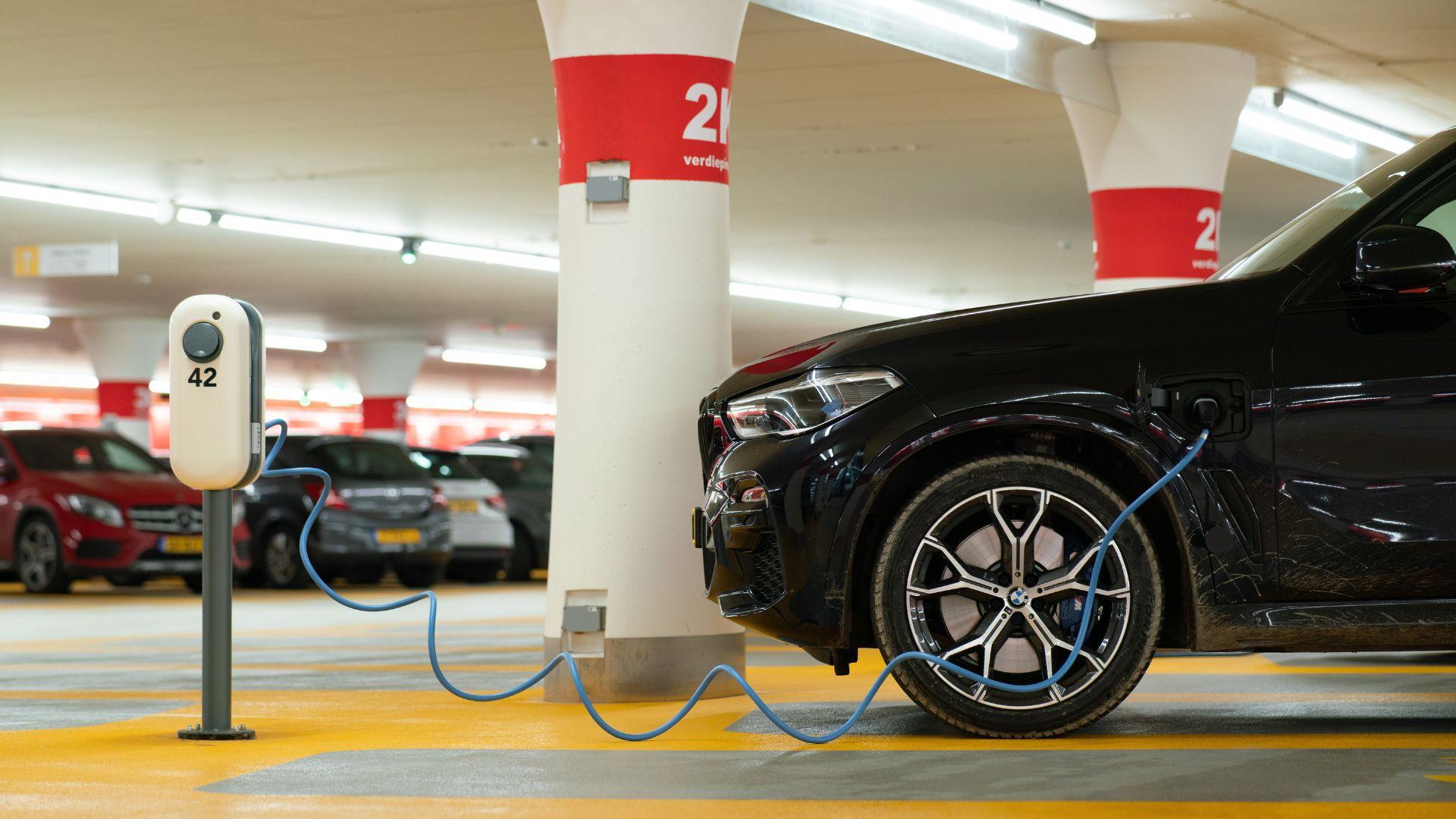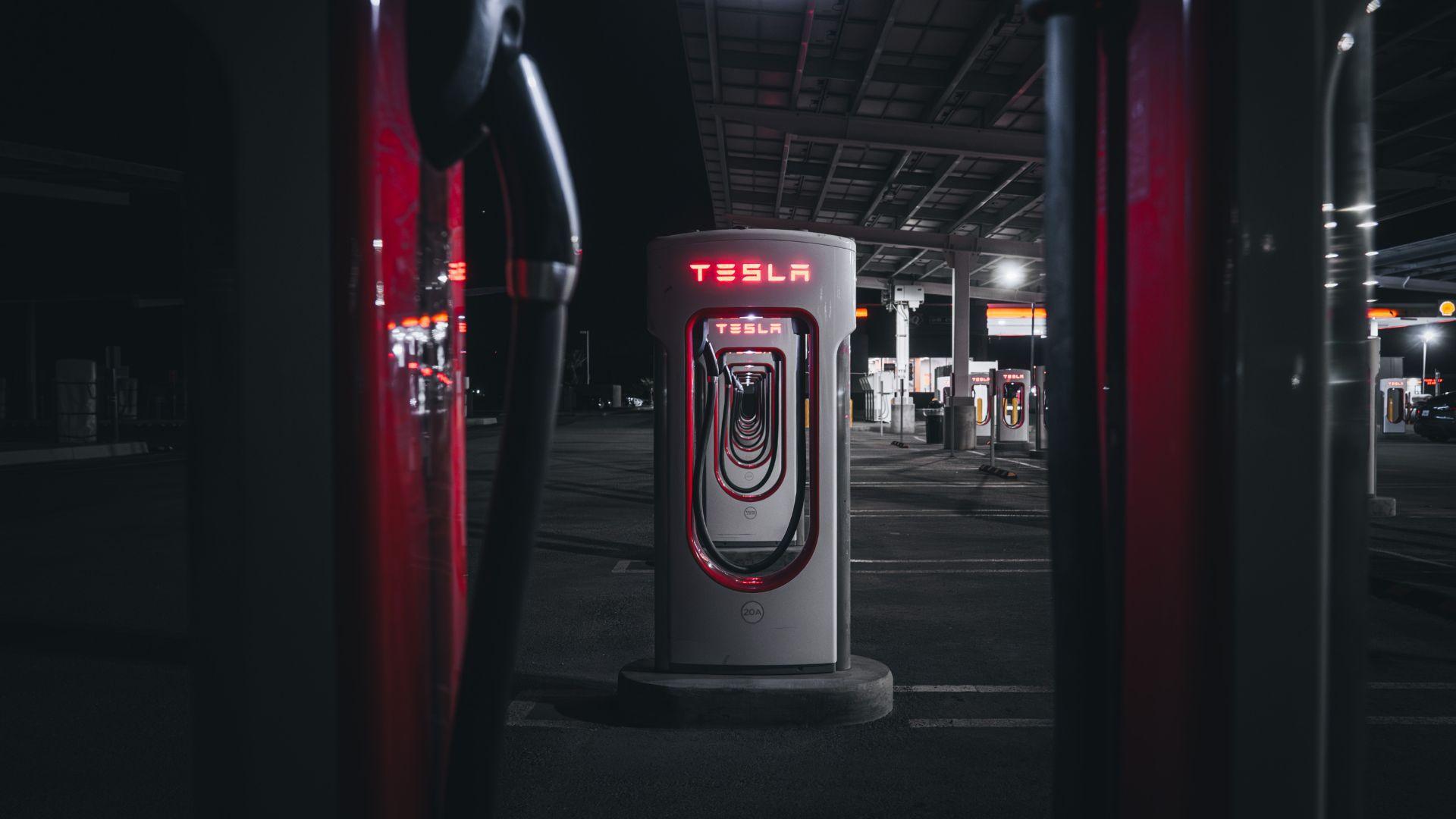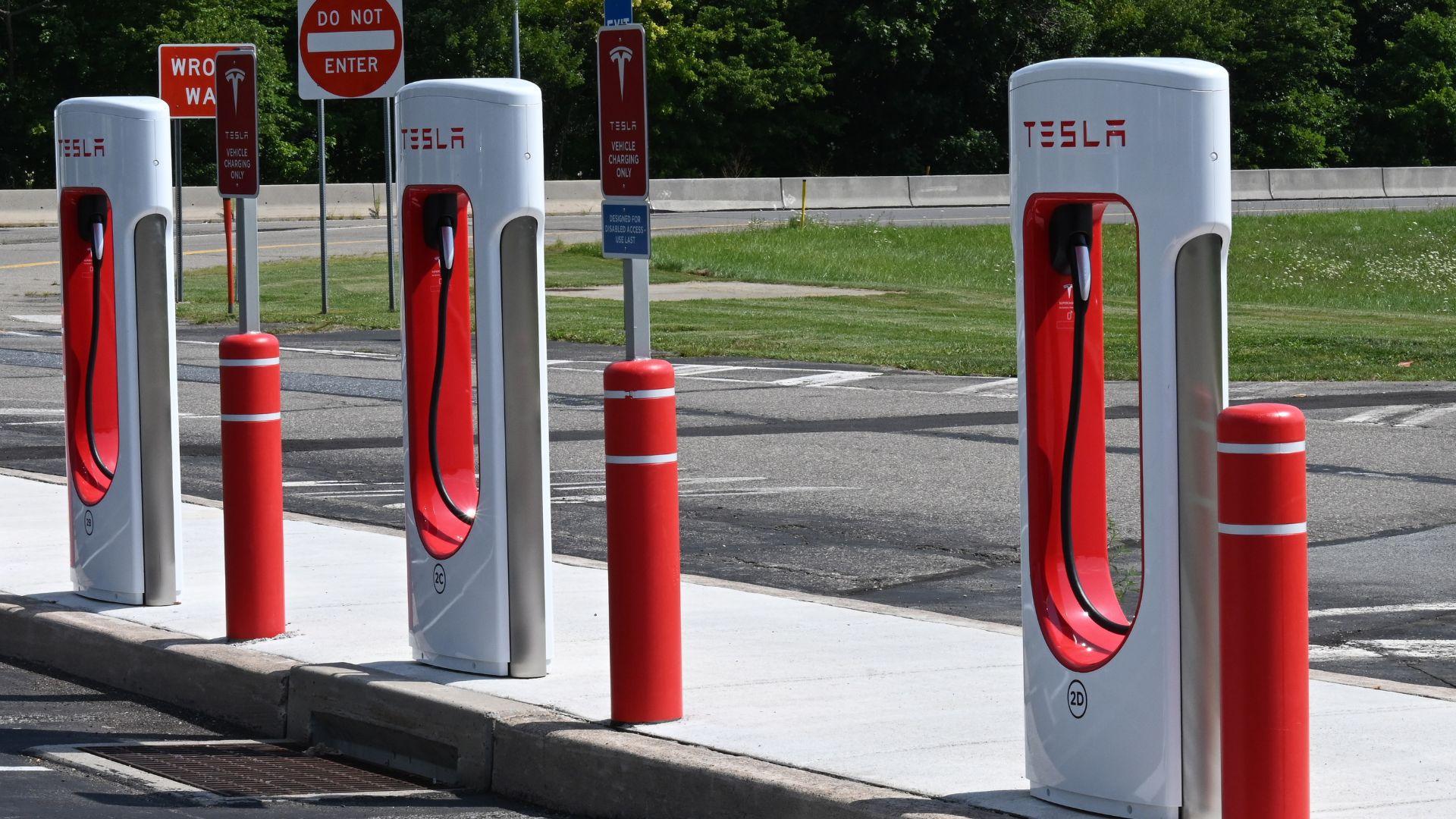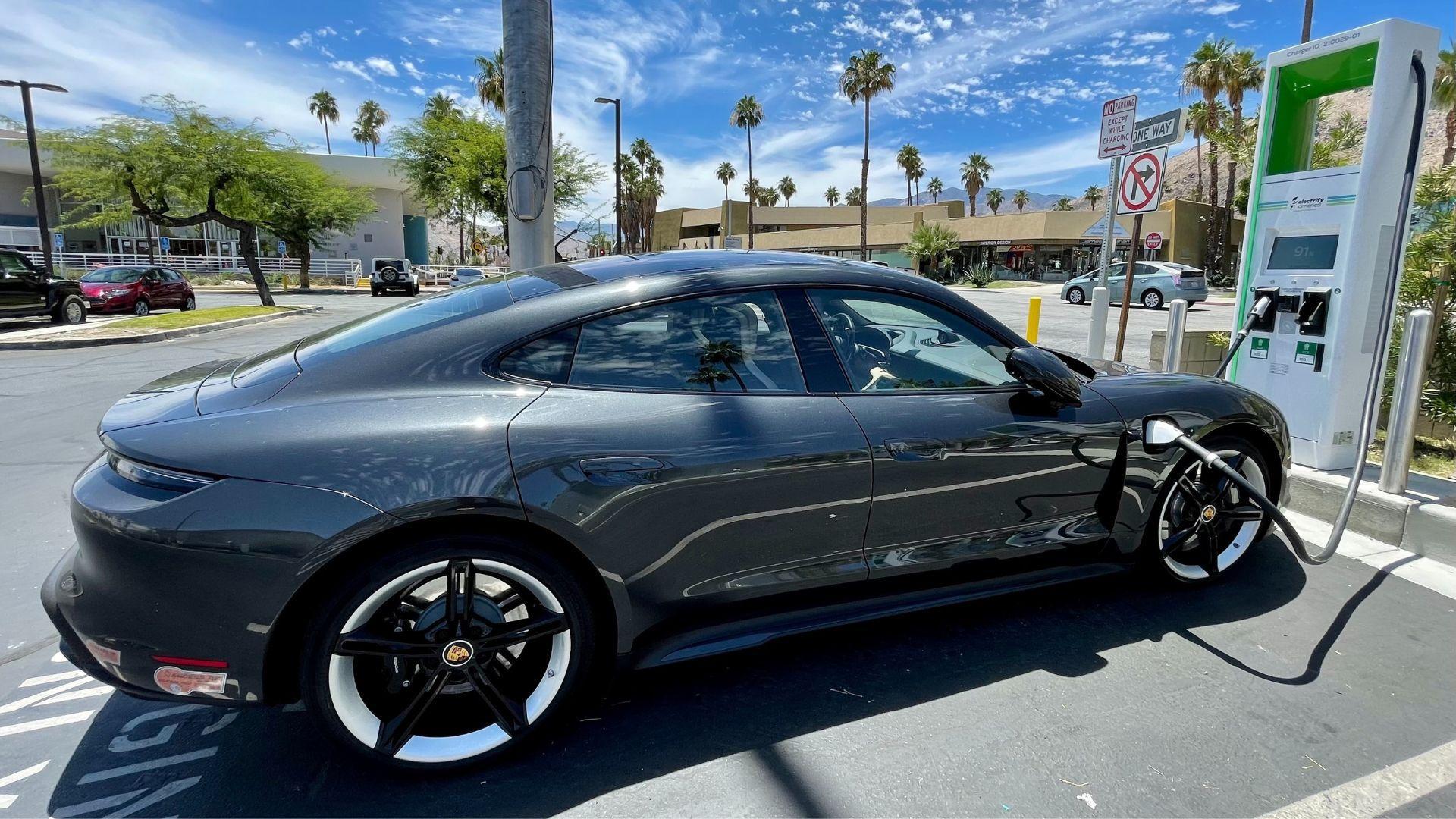On Average it Costs $17 per Gallon to Fuel an Electric Vehicle
Recent research conducted by the Texas Public Policy Foundation has brought to light unexpected costs associated with electric vehicles (EVs). The study, titled “Overcharged Expectations: Unmasking the True Costs of Electric Vehicles,” suggests that when considering various hidden factors, the expense of fueling EVs might approximate $17 per gallon.
This figure starkly contrasts with the perceived low fuel costs of EVs and highlights the need to consider the broader economic and environmental impacts of electric vehicle technology.
The Strain on Energy Grids
The study draws attention to the substantial impact EV charging stations have on the energy grid. These hidden costs, coupled with significant federal subsidies, are often overlooked in the discussion of EVs.

Source: Michael Fousert/Unsplash
The research underlines the importance of recognizing the full scope of costs associated with electric vehicle technology, extending beyond the direct expense of charging the vehicles themselves.
Analyzing EV Economics: Beyond Surface-Level Costs
A detailed analysis by the study reveals that the cost of electricity for EVs, often compared to $1.21 per gallon of gasoline, is just the tip of the iceberg.

Source: Jonathan Ikemura/Unsplash
When accounting for the costs of charging equipment and energy losses over ten years and 120,000 miles, an additional $1.38 per gallon is incurred. These findings challenge the commonly held perception of EVs as a cost-effective alternative to traditional fuel-powered vehicles.
Government Subsidies and EVs
The study points out the extensive government investment in EVs, particularly highlighted by the Inflation Reduction Act of 2022. This act proposes substantial subsidies for various aspects of the EV supply chain, especially battery manufacturing.

Source: Priscilla Du Preez/Unsplash
The magnitude of these subsidies suggests a significant commitment by the federal government towards the promotion and development of electric vehicle technology.
Hybrid Vehicles: An Overlooked Alternative
Despite the focus on electric vehicles, the study suggests that hybrid vehicles might offer a more efficient solution. Hybrids, which use smaller batteries and do not necessitate upgrades to electric infrastructure, could potentially be a more balanced approach to reducing emissions and improving fuel economy.

Source: Austin Park/Unsplash
However, these vehicles currently receive less attention and fewer subsidies compared to their fully electric counterparts.
Comparing Hybrids and EVs
The research emphasizes the efficiency of hybrid vehicles in comparison to EVs. It is stated that the materials required for one EV battery could produce up to 90 hybrid batteries, leading to a significantly greater reduction in emissions over their lifetime.

Source: Erik Mclean/Unsplash
This comparison sheds light on the potential benefits of hybrids, which are currently underemphasized in federal policies and subsidies.
Examining the Study's Integrity: Potential Conflicts of Interest
There is some skepticism regarding the integrity of the study, especially from environmentalist groups.

Source: Luis Ramirez/Unsplash
This skepticism stems from the fact that the Texas Public Policy Foundation, the organization behind the study, has received funding from oil companies such as Exxon and Chevron.
EV Charging and the Energy Grid
The study highlights the significant demand that EV charging stations place on the energy grid, leading to hidden costs that are often not accounted for.

Source: J Dean/Unsplash
These costs are an important consideration in the discussion of the overall economic and environmental impact of electric vehicles, as they affect not just the individual EV owner but the broader energy infrastructure.
Scrutinizing Government Expenditure on EVs
Government spending on electric vehicles, as detailed in the study, reveals an extensive allocation of subsidies.

Source: Hyundai Motor Group/Unsplash
This level of investment raises questions about the long-term sustainability and implications of such financial support for EVs, particularly in comparison to other renewable energy sources and technologies.
Hybrids: A Potential Middle Ground
The study posits that hybrid vehicles might offer a viable middle ground in the quest for more environmentally friendly transportation.

Source: Vlad B/Unsplash
These vehicles combine efficiency with reduced raw material requirements, potentially providing a more sustainable and practical alternative to fully electric vehicles. This perspective suggests a need for a more balanced approach in the promotion and development of eco-friendly transportation.
Policy Bias Favoring EVs over Hybrids
According to the study, there appears to be a policy bias favoring electric vehicles over hybrids. This bias might be impacting the development and adoption of potentially more efficient transportation solutions, such as hybrid vehicles.

Source: Jenny Ueberberg/Unsplash
The study calls attention to the importance of considering all available options in the pursuit of environmental sustainability and efficiency in transportation.
Rethinking Eco-Friendly Transportation Strategies
The findings of the study open up a crucial dialogue about the future of eco-friendly transportation. It highlights the need to reassess current strategies and consider a broader range of options, including hybrids, in the quest for sustainable and efficient transportation solutions.

Source: Bob Osias/Unsplash
This comprehensive approach is essential for addressing the complex challenges associated with reducing emissions and improving fuel economy in the transportation sector.
